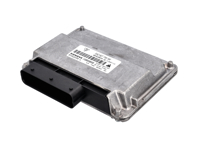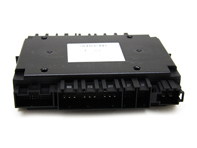



Enter your VAT number here and click Verify:
Your details have been verified. VAT number registered to:
,
.
Your order will now be zero rated for VAT purposes. We reserve the right to verify these details after your order request has been made and reinstate VAT if required.
Your VAT details were not recognised or were invalid. Your VAT number must be matched to your Billing Country as specified above. This is currently specified as . You do not need to enter the country code part of your VAT number as this has already been selected in your billing address details above.
The VAT number checking service is currently offline. Please supply your VAT details within the comments or special instructions field below and we will apply a VAT discount after placing your order request.
Electronic Control Units

- Porsche 955 Cayenne 3.2L V6 2003-06
- Porsche 955 Cayenne S 4.5L V8 2003-06
- Porsche 955 Cayenne Turbo 4.5L 2003-06
- Porsche 955 Cayenne Turbo S 4.5L 2006>>

Fits:
Porsche 955 Cayenne - 2005 to 2006
For cars with Option Code
G0R - Tiptronic S
Click 'Zoom in' for large parts diagram.
Diagram ref no 8
Related reference numbers
Related, superseded, cross reference or alternative numbers for comparison.
95561802311
The product you are viewing cross references to these numbers

- Porsche 955 Cayenne 3.2L V6 2003-06
- Porsche 955 Cayenne S 4.5L V8 2003-06
- Porsche 955 Cayenne Turbo 4.5L 2003-06
- Porsche 955 Cayenne Turbo S 4.5L 2006>>
- Porsche 957 Cayenne 3.0L Diesel 2007-10
- Porsche 957 Cayenne 3.6L 2007-10
- Porsche 957 Cayenne S/GTS 4.8L 2007-10
- Porsche 957 Cayenne Turbo / Turbo S 4.8L 2007-10
driver memory package (I3L4) and
12-way electrical adjustment for both front seats + memory (I3PN)

Fits:
Porsche 955 Cayenne 2003-06
Porsche 957 Cayenne 2007-10
Click 'Zoom in' for large parts diagram.
Diagram ref no 3
Related reference numbers
Related, superseded, cross reference or alternative numbers for comparison.
95561874000
The product you are viewing cross references to these numbers


- Porsche 955 Cayenne 3.2L V6 2003-06
- Porsche 955 Cayenne S 4.5L V8 2003-06
- Porsche 955 Cayenne Turbo 4.5L 2003-06
Restore proper centre differential/transfer-case lock control in your Porsche Cayenne 955 chassis, 2003-2004. This ECU module governs the longitudinal lock mechanism of the drive system, ensuring correct power distribution front to rear, correct 4WD behaviour and stable traction. Ideal for replacing a failed or malfunctioning unit, it enables your 4WD system to perform reliably.
Fits:
- Porsche 955 Cayenne 3.2L V6 2003-04
- Porsche 955 Cayenne S 4.5L V8 2003-04
- Porsche 955 Cayenne Turbo 4.5L 2003-04
G0R - Tiptronic S
Diagram Ref No 8
What This Product Does:
- In 4WD/all-wheel-drive systems the “drive longitudinal lock” refers to locking mechanisms of the centre differential or transfer case — this ensures power is correctly distributed between front and rear axles.
- This ECU monitors and controls that locking system: it takes inputs (wheel speeds, differential states, driver commands) and commands the actuator (solenoids, clutches) in the transfer case or centre diff to engage or release the lock.
- Proper function ensures that the vehicle’s 4WD system behaves correctly (engaging or disengaging locks when required), which impacts traction, stability, driveability and sometimes road regulations (e.g., snow/ice mode).
- If this unit fails, the locking system can get stuck open or closed, produce fault codes, and affect driving behaviour (especially in low-traction or off-road situations).
Symptoms Of Failure Or Need For Replacement:
- A fault code related to the centre differential, transfer case, or “longitudinal lock” is present in the diagnostics.
- Loss of 4WD function or “lock” function — e.g., the vehicle stays in 2WD when it should lock, or it stays locked when it shouldn’t.
- Illumination of warning lamps related to drivetrain/4WD/traction.
- Unusual noises from the transfer case / centre diff (clutch slipping, grinding) that might be triggered by improper lock control.
- Intermittent behaviour (sometimes works, sometimes doesn’t) which can indicate ECU logic/actuator control failure rather than a purely mechanical fault.
Why Replacement Matters:
- Because the control unit is central to drivetrain behaviour, a fault here can drastically degrade vehicle performance, safety (traction/stability) and drivability.
- For a Porsche Cayenne early model (955), these units are becoming harder to source or may be superseded — replacing a failing unit proactively protects the vehicle.
- Restoring the correct function of the 4WD/centre differential lock restores the vehicle’s intended performance envelope, especially under load, off-road or in low-traction conditions.
- From a maintenance/resale perspective: a vehicle with a properly functioning transfer-case lock system is more desirable; faults here reduce value.
- Lastly, diagnosing and replacing the ECU early may prevent secondary damage (mechanical wear from improperly controlled locks/clutches).
Related reference numbers
Related, superseded, cross reference or alternative numbers for comparison.
95561802305
The product you are viewing cross references to these numbers
Electronic
Control Units (ECUs) – Precision Performance and Reliability for Porsche
Vehicles
Electronic Control Units (ECUs) are the brains
of your Porsche’s electronic systems, managing and monitoring everything from
engine performance to fuel delivery, ignition timing, transmission response,
and emissions control. These highly sophisticated modules communicate with
multiple sensors and actuators to ensure your car runs efficiently, safely, and
smoothly under all driving conditions.
At Design911, we supply a wide range of genuine and high quality ECUs for Porsche models - including engine control units, transmission control modules, body control units, and more. Each ECU is manufactured to the highest standards, ensuring exact compatibility and seamless communication with your vehicle’s electronic architecture.
What Do Electronic Control Units Do?
An ECU acts as the central processor of
a vehicle’s system, interpreting data from sensors and adjusting performance
parameters in real-time. Depending on the application, ECUs can control:
- Engine management: fuel injection, ignition timing, turbo boost, and air-fuel ratios.
- Transmission systems: shift points, torque converter lock-up, and gear selection.
- ABS and traction control: maintaining grip and stability.
- Body systems: lighting, climate control, and interior functions.
Modern Porsche vehicles often contain multiple ECUs working together across a CAN bus network, ensuring optimal efficiency, emissions compliance, and driver comfort.
Why Do ECUs
Fail?
Electronic Control Units are robust, but can
fail due to age, environmental factors, or electrical faults. Common causes
include:
Symptoms of ECU failure may include engine misfires, warning lights, poor performance, stalling, or failure to start.
Why replace
your ECU?
A faulty ECU can cause unpredictable
performance, poor fuel economy, and safety concerns. Replacing a malfunctioning
unit restores the precision and reliability your Porsche was built to deliver.
Benefits of replacing with a quality ECU
include:
- Full compatibility with vehicle systems.
- Restored factory performance and efficiency.
- Elimination of warning lights and diagnostic faults.
- Improved reliability and drivability.



